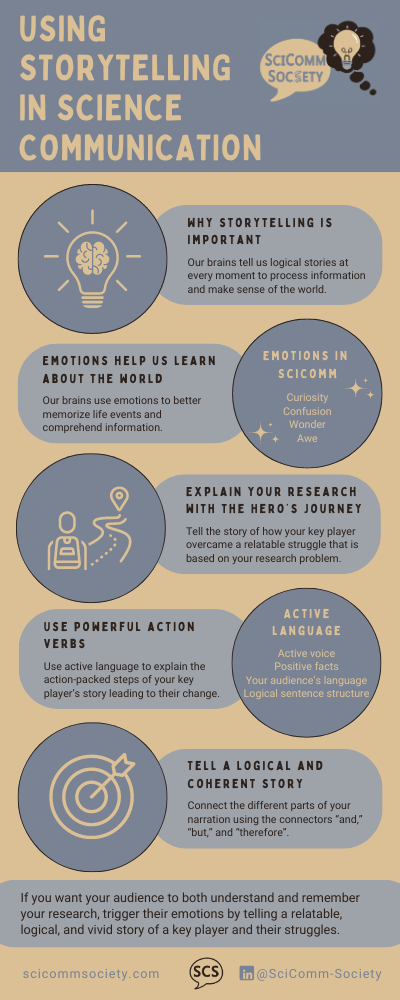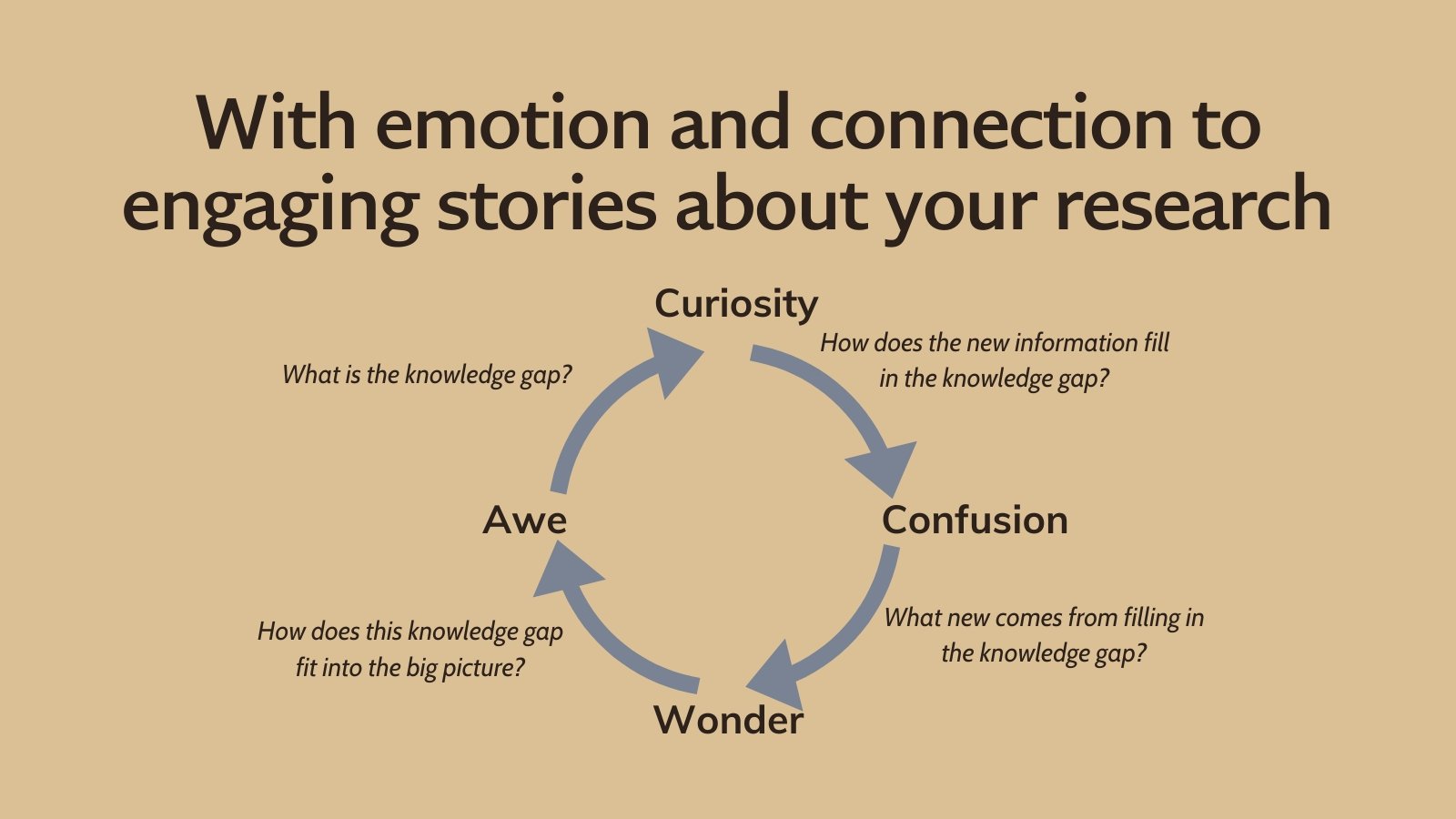Develop Engaging Stories About Your Research
Find the story in your data and make an impact with your science.
In the fast-paced world of science communication, grabbing and retaining your audience's attention is quite a challenge.
Storytelling offers an effective approach to communicate your knowledge, helping your audience learn from your science and make well-informed decisions.
Presenting "Using Storytelling In Science Communication"—your guide to transform your research into engaging narratives.
Thank you for your purchase
Have a great day!
Why Storytelling Matters In Science Communication
Stories are all around us. Through stories, our brains make sense of the world. Research even showed that we remember facts and concepts better when we learn them through stories.
That's why storytelling is a powerful tool for science communication. But I know that it can be difficult for scientists to take a step back from their project and find the story in their data.
Hence, I introduce you to the practical guide "Using Storytelling in Science Communication".

What You'll Learn About Engaging And Logical Science Stories
🔹 The science of storytelling: Dive into the psychology and neuroscience of storytelling and learn how our brains make sense of big concepts through logical and connected stories.
🔹 Emotions in stories: Every great story triggers various emotions in an audience. We will look into how to harness epistemic emotions to help your audience learn and care about your research.
🔹 Identifying the hero of your story: To craft a relatable narrative, step back from your research and determine its key player. You will learn to identify the hero of your project and tell their story.
🔹 Connecting the different story pieces: After having nailed down the essential components of your story, we will go through methods to link the pieces together into a logical story that flows.
🔹 Telling an action-packed story: Enhance your story's language with practical techniques to ensure your story moves forward and engages and convinces your audience.

A Practical Guide On Using Storytelling In Science Communication
Hello, I am Sarah, one of the co-founders of SciComm Society. I have been a science writer, blogger and editor for many years. After having left academia, my aim shifted towards helping scientists share their knowledge with the world.
Read my publication "Transforming science into engaging stories" about my experience delivering the storytelling workshop at scientific conferences.
I've noticed that many scientists struggle with telling engaging and logical narratives from their projects even though they have all the necessary information in their heads. That's why I collected and adapted different approaches to transform a research project or scientific concept into a story. In this guide, you will gain the theoretical understanding of the storytelling framework as well as practical advice on how to apply it.
As you work through the guide, you will be developing an engaging story about your research project. This story you can directly share on social media, adopt for your next talk or elaborate into a complex narrative for your next grant application. Whatever the goal of your science communication project, you will have the tools and framework at hand to craft a creative story that evokes emotions and helps your audience get science.
Help Your Audience Learn From Your Research With Creative Science Stories
Thank you for your purchase
Have a great day!
Share Science Stories.
Ignite Curiosity.
Make an Impact.

